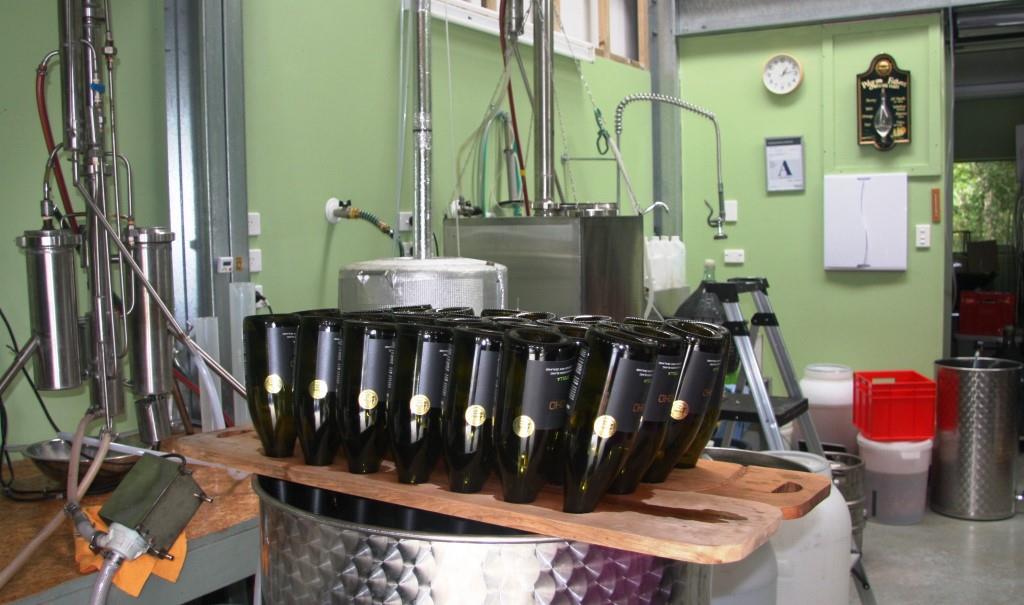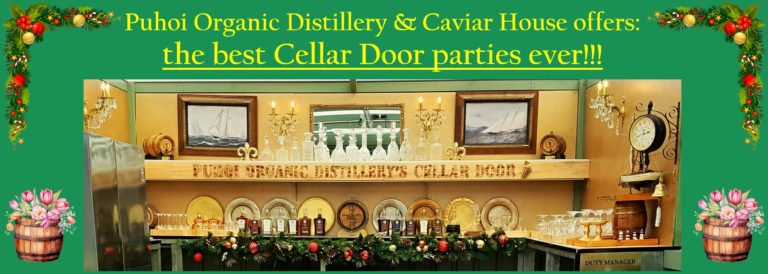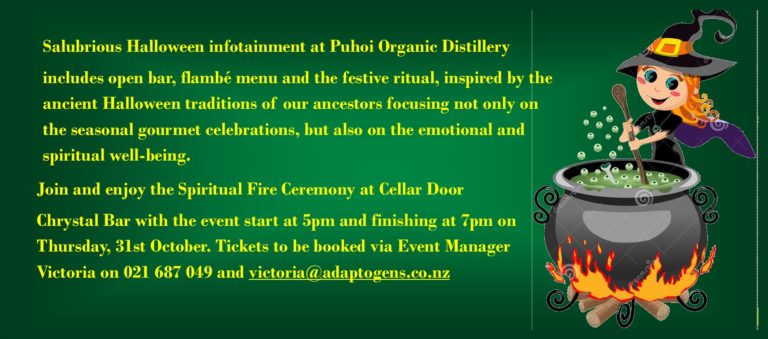The mankind uses fragrant substances from time immemorial, and nobody can tell when and where exactly this started.
As far as alcohol use in perfumery is concerned, there are a few common versions about the start of using alcohol as a solvent, carrier and preservative of fragrance in liquid form. We do not wish to join the dispute of who was the inventor of this method – this argument will probably never end. The fact that is accepted without argument is that in the 16th century a real revolution happened in the perfume world – triggered by alcohol. This was Spiritus Vini – alcohol distilled from natural grape wines. By the way, the three following centuries were the golden age of natural perfumery, as no synthetic alternatives existed until the start of the 20th century. During these times the methods and technologies of classic perfumery based on natural grape alcohol (Spiritus Vini) were created.
It is of note, that fractional distillation allows the Master Distiller to sense the whole palette of the ingredients in different brews. As a Master Distiller, I can share the following observation: the most fragrant and interesting from the perfumery point of view palette can be sensed during the distillation of wines.
The most attractive aldehyde notes appear in the transition zone from the “head” to the “body” during the wine distillation. This effect was discovered centuries ago in process of Cognac manufacturing. This tiny, hard to catch fraction became known as Esprit de Cognac and is very highly valued by the perfume-makers.
Esprit de Cognac is Spiritus Vini saturated with the composition of highly volatile aldehydes which have a very pleasant nose familiar to everyone who once smelled a real quality Cognac/Brandy. It is the very aroma which inspired the creator of the legendary Chanel No. 5 – this famous composition was created by French-Russian chemist and perfumer Ernest Beaux. However, back in 1920s Esprit de Cognac was rare and expensive, and therefore Chanel No. 5 was created using the cheaper synthetic aldehydes.
A similar cost-cutting situation developed around the natural alcohol (Spiritus Vini). To start with, it was replaced by other cheaper, although still natural types of alcohol distilled from corn, potatoes, etc. However, for the purposes of mass production, even those cheaper types of natural alcohol were still too expensive, and they were in their turn replaced by the cheapest, artificially synthesized petrochemical ethanol. Nevertheless, this is not the end of degradation of the main and very important perfume ingredient, which is now known by many different names, including: Ethyl Alcohol, Ethanol or simply Alcohol.
In order to avoid heavy alcohol taxation, perfume alcohol is being denaturated for almost all perfumes on the market. Denaturation is the process of mixing of small amount of toxic additives into the alcohol in order to prevent its consumption as a beverage. The term “Denaturation” derives from the Latin word “denaturatus”, literally meaning “depleted of its natural properties”, which contradicts the philosophy of natural perfumery.
Different toxins are used in different countries for the denaturation, therefore several terms are used to list denaturated alcohol on the perfume packaging. You can come across the following terms for denaturated alcohol: SD Alcohol (Specially Denatured Alcohol) or Alcohol Denat., as well as more detailed marking depending on the type of toxin used for denaturation (e.g. SD Alcohol 3-A, SD Alcohol 23-A, SD Alcohol 30, SD Alcohol 39, SD Alcohol 39-B, SD Alcohol 39-C, SD Alcohol 40, SD Alcohol 40-B и SD Alcohol 40-C).
So, what’s wrong with using the denaturated alcohol in perfumes? This is a popular topic for the scientific research on the safety of consumer products, and most researchers come to the same opinion as, for example, Bill Statham did in his book ‘The Chemical Maze’: the potential negative effects of using denatured alcohol include skin irritation, birth defects, reproductive toxin and neurotoxicity.
At the same time some unscrupulous companies selling denaturated alcohol for perfumers praise its “special properties” and even claim that it’s better than natural alcohol.
In any case, for the purposes of natural perfumery, naturally, only natural ingredients should be used! Usually 100% natural perfumes are identified by wording “All Natural ingredients”.
Therefore, further, when mentioning Alcohol, I will be talking about the Natural Alcohol only, and such Natural Alcohol has its own classification.
First of all, for perfumers it is important to know that two primary types of Alcohol exist: odourless and fragrant.
Odourless alcohol is easier to use, and is more convenient for beginners. Also, it is a perfect solvent/extractor/preservative for producing tinctures.
Fragrant alcohol, for example, Esprit de Cognac, already possesses its own aroma and special qualities which are successfully utilized by advanced perfumers. Among other valuable characteristics of Esprit de Cognac stands out its “shock value” due to the famous ability of aldehyde notes to produce a piquant quality and “uplift” the perfume composition.
In addition, any Alcohol has its strength (percentage of Alcohol by volume – ABV). The higher the percentage of Alcohol by Volume, the easier it is to use in creation of perfumes. Fractional distillation method produces 95% ABV. This means that 95% are taken by Alcohol itself, and the remaining 5% is mainly water and traces of other fermentation ingredients. The essential oils used in natural perfumery perfectly dissolve in Alcohol, but do not dissolve in water. This is why ordinary vodka (from 37% to 56% ABV) is unsuitable for perfume-making.
Well-purified and strong alcohol (from 95% ABV) becomes almost odourless and therefore, in this case it is not that important what raw materials were used to produce, but it is crucially important that only natural raw materials were used.
At Puhoi Organic Distillery we, for the creation of our boutique All Natural perfumes, use different types of Natural Alcohol. Our multi-purpose favourite is Spiritus Vini (95% ABV), delicately fragrant Alcohol which I distill from different kinds of New Zealand wines. Regardless of what wine was used for the distillation, Organic Shiraz or award-winning Sauvignon Blanc, the result is always amazing!
Spiritus Vini is the best option for the creation of such highly valuable natural perfume fixatives as Ambergris tincture and Beeswax Absolute (and these are the only fixatives used in our bespoke Salubrity Scents perfumes). This is the very classic traditional method of creating natural fixatives used by the perfumers in the 16th – 19th centuries.
A very sophisticated, rare and exotic perfumer’s alcohols are distilled by me from naturally brewed apple and pear ciders. These alcohols are almost odourless, but still delicately retain their fruit origins. The rareness of these fruit alcohols is explained by the extraordinary volumes of good cider that needs to be distilled.
Cane sugar perfumers’ alcohol could be called purified white rum, and, therefore, its fragrant notes remind of its tropical roots. It is perfectly suitable for spicy and oriental perfume compositions.
Another very interesting and unique pefumers alcohol which I distill from time to time, comes from the expensive organic coconut flowers’ nectar. This outstanding in every meaning perfumers alcohol is suitable for any high quality fragrance composition. It is so unique, that most perfumers do not even suspect about its existence.
My grain perfumers alcohol, the most affordable option, is almost odourless but retains a recognizable scent of freshly baked bread. Only GMO-free wheat is used for manufacturing of the grain perfumers alcohol. Unlike many other distillers, I avoid using corn because almost always it is genetically modified.
Water is the perfume’s “enemy”, but it is unavoidable ingredient naturally appearing, for example, in tinctures from the plant material. It is also a tiny part of any perfumers alcohol (less than 5% by volume). Greedy manufacturers dilute fragrances with water, but it is not a good example to follow for valuable high quality handcrafted natural perfumes, especially concentrated Eau de Parfum, Parfum and Extrait.
It is difficult enough for the artisan perfumer to find high quality natural perfumers alcohol; it is even more complicated to get this liquid treasure delivered. Any alcohol in strength higher than 70% ABV is internationally classified as Dangerous Goods (Class 3) and is not allowed to be shipped by ordinary courier and post.
The good news is that we are experienced in organizing the shipment of perfumers alcohol, however, the international shipments of perfumers alcohol are quite expensive. Nevertheless, the price of the delivery becomes reasonable for orders starting from five litres, and is even more reasonable for orders from ten litres and more.
We take orders for overseas shipments of perfumers alcohol starting from 10 litres only (please note that we can supply you with a combined order with multiple types of alcohol comprising this total volume of 10 litres, e.g. one litre of different alcohol type x 10). Please note that strong alcohol is internationally classified as Dangerous Goods Class 3, and its shipment is allowed by authorised couriers only. The shipment of Dangerous Goods is quite expensive, e.g. even relatively short-distance shipment from NZ to Hong Kong, Singapore or Australia will cost starting from NZD $1,000. Therefore it is cost effective to order from 10 litres plus.
Please order here and include your delivery address for prompt shipment quote.



